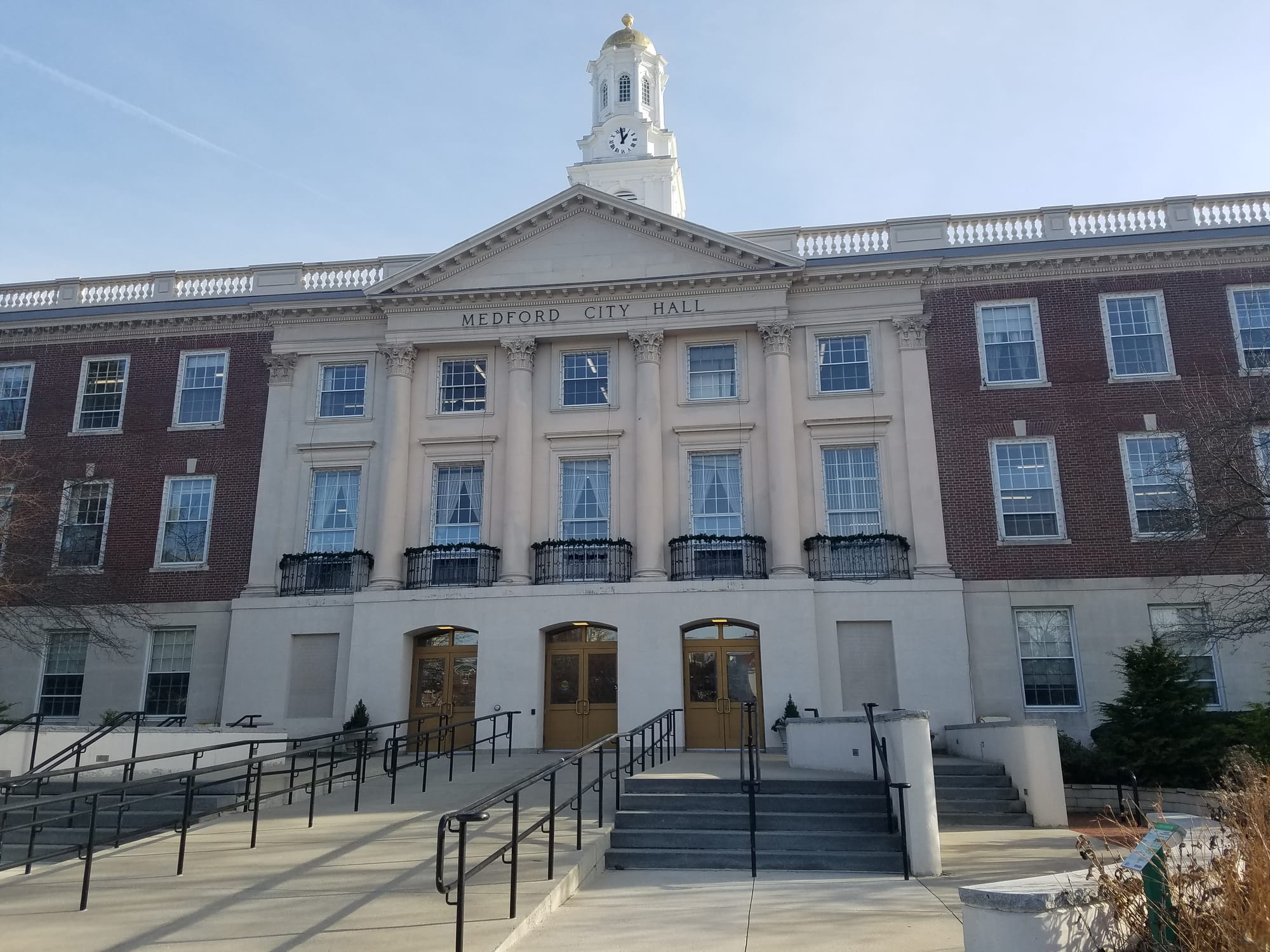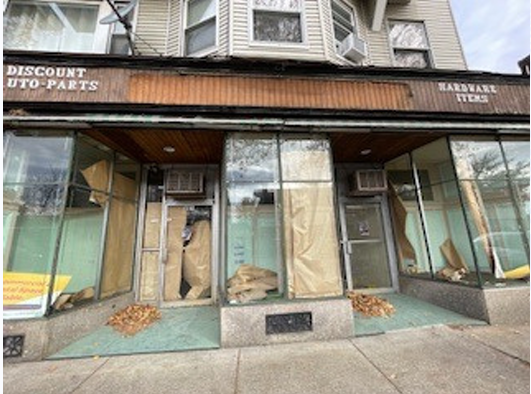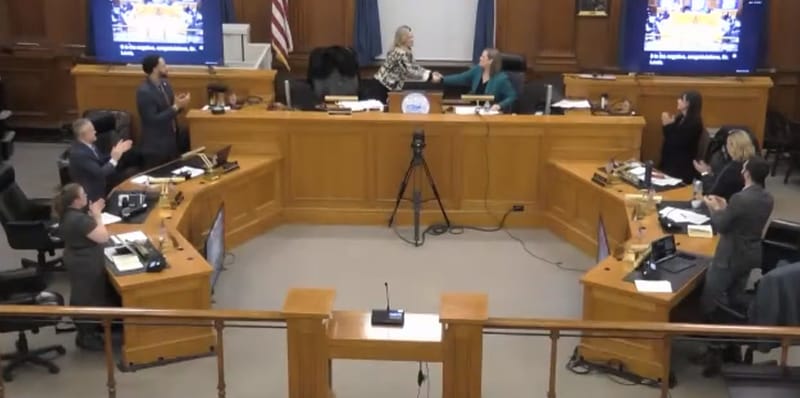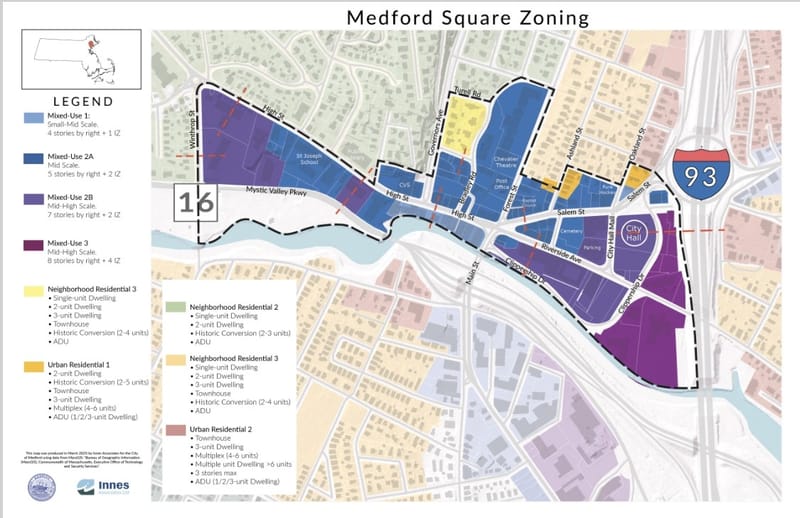Medford taxes on the rise, 4.9% increase over 2025
Councilors to explore the possibility of adopting a residential exemption for owner-occupied homes in 2027
The average residential tax bill will increase by roughly $344 in 2026, almost a 4.9% increase over 2025.
The City Council voted to set the tax rate during its regular meeting on Nov. 18.
Chief Assessor Jared Yagjian noted it could have been worse. Had the city gone with a flat rate, meaning both residential and commercial/industrial/personal property (CIP) paid the same rate, the average tax bill would have jumped to $8,202 rather than the projected $7,427.
“But we don’t typically do that,” Yagjian said. “We shift to the maximum that we can, which then gives us the lowest minimum factor for the residential class.”
Making that shift drops the residential rate to $8.63 and moves the CIP rate to $16.68, Yagjian said.
Where does the money go?
Yagjian said 72.5% of the city’s budget comes from property taxes.
What was last year’s tax rate… or the year before?
Year Avg. home Avg. Tax Bill Yearly Change
2025 $804,888 $7,083 $532
2024 $768,849 $6,551 $336
2023 $718,458 $6,215 $312
2022 $654,409 $5,903 $135
2021 $612,965 $5,768 $122
2020 $615,010 $5,646 $220
But the main topic of discussion among councilors wasn’t necessarily the tax rate, it was regarding the vote on a “residential exemption.” Yagjian’s recommendation was to not adopt the residential exemptions and more than one councilor wondered why?
What is a residential exemption?
Council President Zac Bears said the simplest way to explain it is this: The assessors calculated a breakeven point of $1,038,727, so if you are the owner of a residential property, and you live there as in it’s your primary property and it’s worth more than $1,038,727, then you would pay more in taxes.
But if you owned a primary residence that was valued less than $1,038,727, you would pay less.
Yagjian said that was correct and also noted the further away you got from the breakpoint either way, the amount owed, up or down, becomes more significant.
Councilor Anna Callahan was quick to note buildings that are owned by landlords and not owner-occupied, would not be in line for the discount.
Twenty Bay State communities have adopted the residential exemptions and 10 are located on the Cape and the Islands, Yagjian said. The other 10 include Boston, Brookline, Cambridge, Chelsea, Concord, Everett, Malden, Somerville, Waltham and Watertown.
Yagjian said the exemption is mainly beneficial to communities with a high number of rentals and it benefits year round residents.
Medford has 3,721 rental units and 4,300 two and three family homes, according to Yagjian.
Why hasn’t it been adopted?
Callahan said she was surprised last year to discover they couldn’t actually vote on the residential exemption, even though it was on the agenda, because they didn’t have the information needed to make a decision.
“How could we be in a position when this comes up on our agenda, to actually make a vote,” she asked.
Yagjian said it’s all about implementation. He said, ballpark, his office would probably receive 10,000 applications and they could likely process 210 in a 35-hour week, which means it would take 47 weeks to get through the applications.
And they would need to do that before October, when they begin to factor the tax rate, he said. He believes they would actually need the applications processed 10 months prior to the tax deadline, and he doesn’t see a way they could do that with the current staffing.
Bears said they have asked for an increase in staffing in the assessors office, but it has yet to make it into the budget.
“I believe last year, and I think also the year before that we asked about looking into this more carefully,” said Councilor Emily Lazzaro. “We don’t have to do it now, but we should do it at some point. Medford is a city with a lot of income disparity and I think it would be worth doing a study to see who would benefit from an exemption and who wouldn’t.”
She suggested the issue go into committee to be studied and Callahan made a motion to do just that with a goal of meeting on it prior to March. The motion passed unanimously.
Resident Andrew Castinetti said he was disappointed in city councilors, that they hadn’t made this happen before now.
Resident Robert Carney said he didn’t necessarily have an opinion on whether or not the council should adopt the exemption, but having previously lived in Everett, he had some experience with it.
“I felt like, as a first-time homebuyer, the resolution made homeownership more affordable to me,” he said.
Carney said he thought it also brings a measure of security to the residents impacted and even though he is now the landlord of that property and no longer enjoys the tax break, he believes it’s a fair resolution.
“And I’m just glad you all are talking about it,” he said. “Thanks for bringing it up.”





